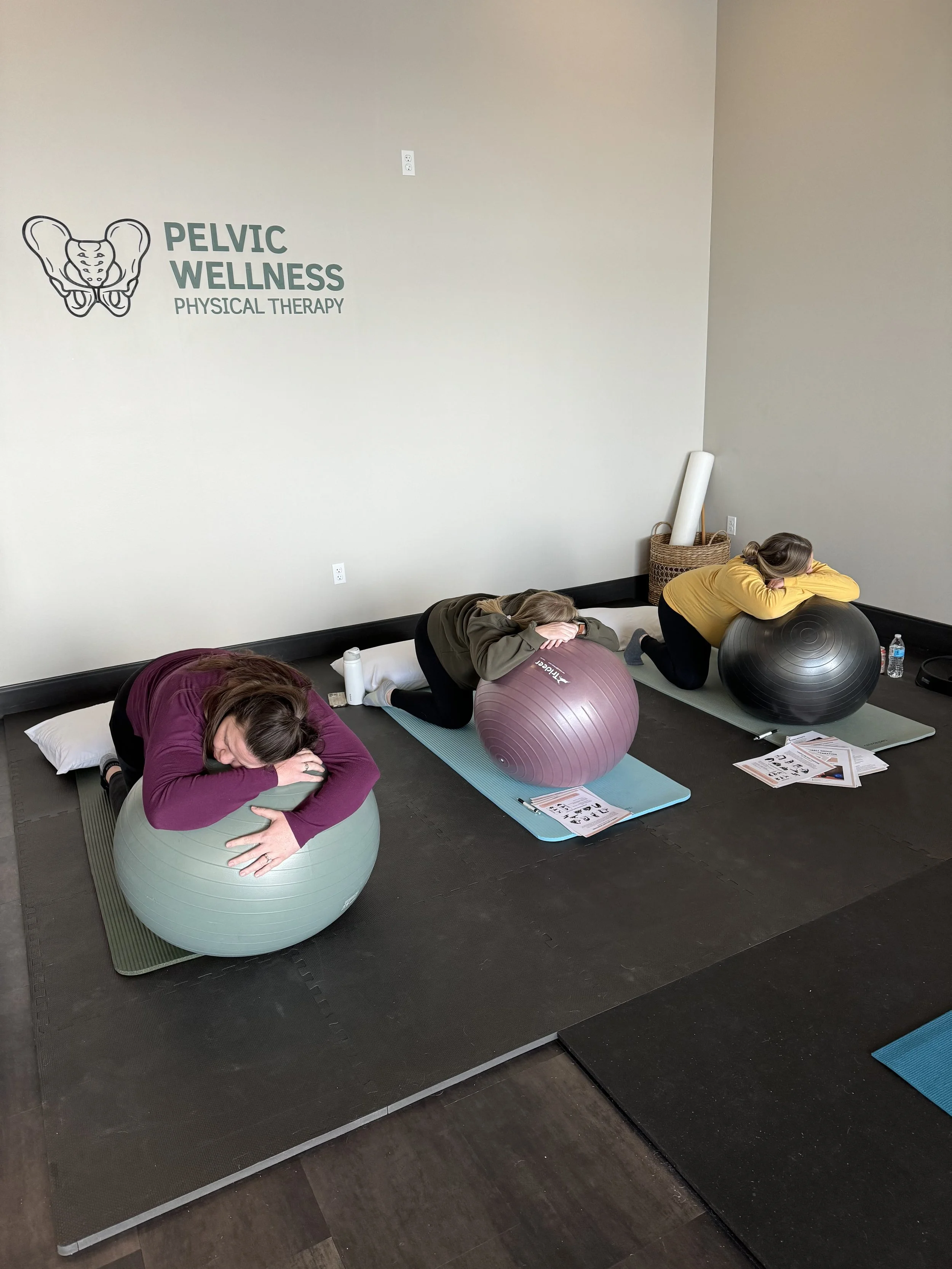
Birth Preparation in Omaha, NE
At Pelvic Wellness, we are dedicated to helping women prepare for the birth experience they envision.
Our Birth Preparation sessions are perfect for women at any stage of pregnancy who are ready to focus on labor and delivery. You do not have to be experiencing symptoms during your pregnancy to come in for birth preparation.
Whether you’re navigating the excitement and uncertainty of your first pregnancy or preparing for a subsequent birth with a desire for a different delivery and recovery experience, we’re here to provide the guidance and support you need.
One-on-One Birth Prep with a Doctor of Physical Therapy
Education
Empower yourself with knowledge about the musculoskeletal changes that occur during pregnancy and how they impact your posture, pelvic floor, and core. Topics include:
Diastasis Recti Abdominis (DRA): Learn what it is, how to assess it, and steps to support your core during pregnancy and postpartum.
Deep Core Activation: Discover how to properly engage and strengthen these vital muscles for optimal support.
Postural Changes & Techniques: Understand how pregnancy affects your posture and learn practical strategies you can start using now for a more comfortable and confident pregnancy.
Preparation
Equip your body and mind for the incredible event of childbirth. Being physically and mentally prepared can make a significant difference in your labor and delivery experience. In our sessions, we’ll cover essential techniques to support the progression of labor and promote an optimal delivery, including:
Pushing Techniques: Learn the types of pushing and how to push effectively and productively.
Labor & Delivery Positions: Discover positions that enhance comfort and facilitate a smoother delivery.
Baby Positioning: Master techniques to encourage optimal baby positioning within the pelvis at different stages of labor.
Prevention
Gain practical skills to manage the physical changes of pregnancy and reduce the risk of common symptoms during pregnancy, delivery, and postpartum. Pelvic floor dysfunction is prevalent during the perinatal years, but you can take proactive steps to minimize its impact. We’ll provide you with tools to help prevent:
Urinary Incontinence
Urinary Urgency or Frequency
Pain with Intercourse
Low Back or Pelvic Girdle Pain
Pelvic Organ Prolapse
These strategies will empower you to support your body now and in the future.
Begin Preparing For The Delivery You Envision!
Small Group Birth Preparation Course
Our Small Group Birth Preparation Course is another option for receiving our birth prep guidance.
In this course, we cover all of the same techniques as we would in our 1-on-1 birth prep sessions, however the course is geared toward a variety of birth experiences, rather than your specific birth plan.
Our group course is often held on a weekend afternoon. This is more convenient for some expectant moms than doing on 1-on-1 prep in the clinic, which would all be done during the week.
We typically hold this course once per quarter. Our last class was February 9, 2025. You can register to be informed of future classes below.





